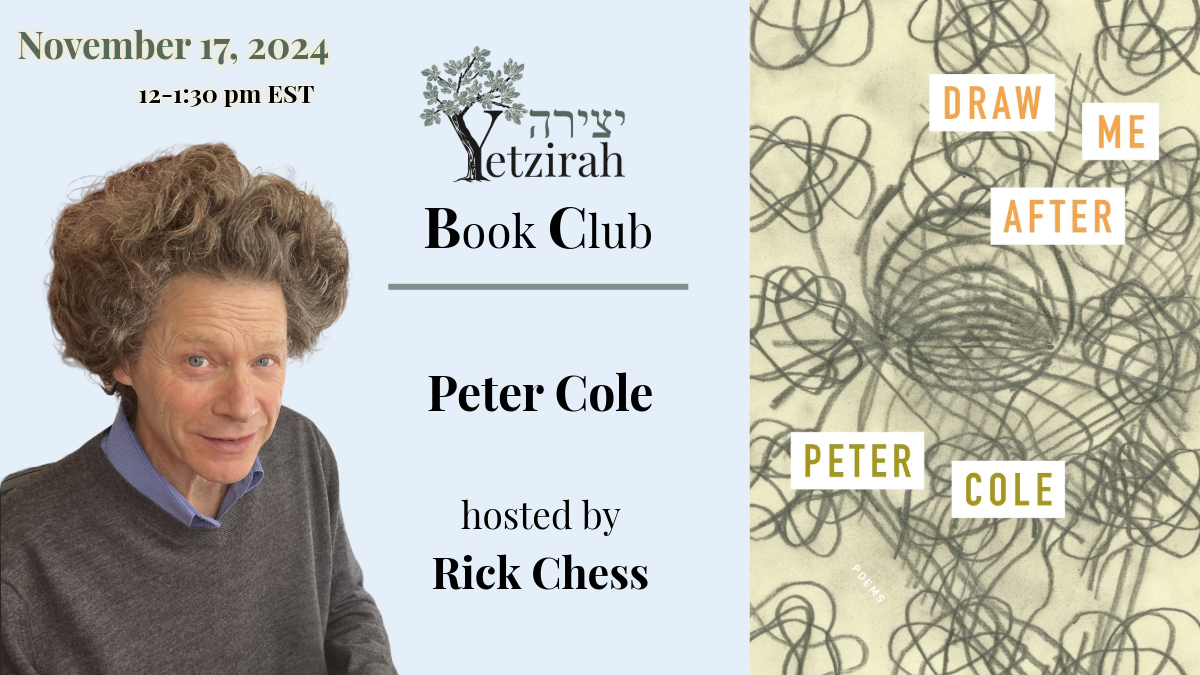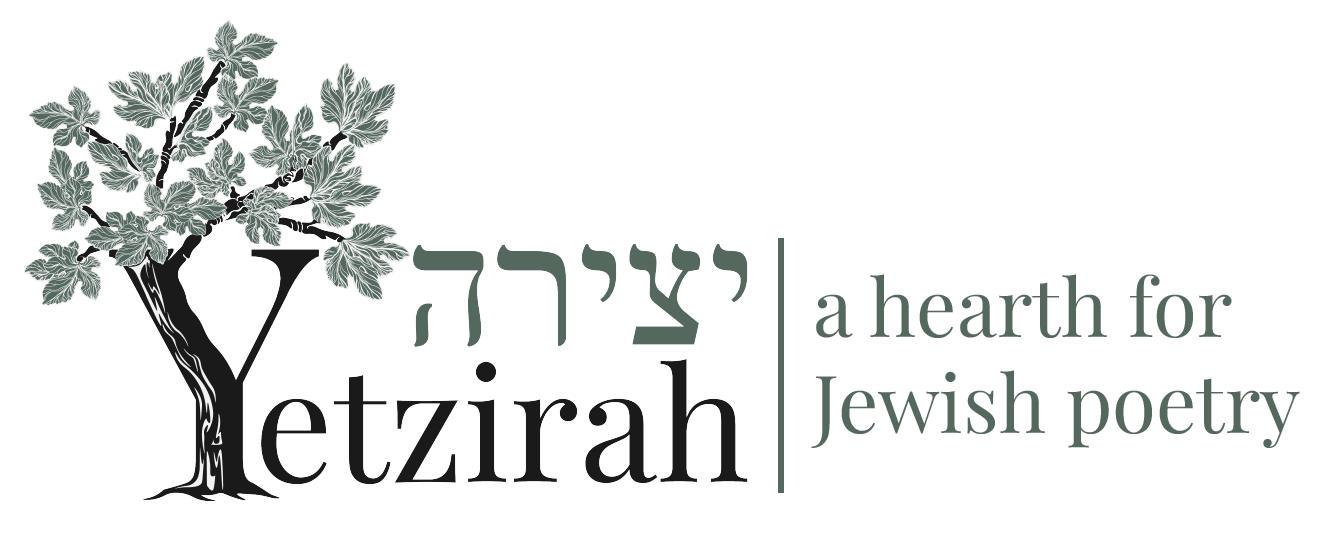
Book Club: Peter Cole
Draw Me After, Peter Cole
A reading and conversation with Peter Cole, hosted by Rick Chess.
Poet and translator Peter Cole was born in Paterson, New Jersey. His collections of poetry include Draw Me After (2022), Rift (1989), Things on Which I’ve Stumbled (2008), The Invention of Influence (2014), and Hymns & Qualms: New and Selected Poems and Translations (2017). With Adina Hoffman, he wrote the nonfiction volume Sacred Trash: The Lost and Found World of the Cairo Geniza (2011). Described by Harold Bloom as a “major poet-translator,” Cole has translated important writers in Hebrew and Arabic, including Aharon Shabtai and Taha Muhammad Ali. He also edited and translated The Poetry of the Kabbalah: Mystical Verse from the Jewish Tradition (2012) and The Dream of the Poem: Hebrew Poetry from Muslim and Christian Spain, 950–1492 (2007).
Cole’s many honors and awards include fellowships from the National Endowment for the Arts and the Guggenheim Foundation, and a genius grant from the MacArthur Foundation. He is the recipient of a National Jewish Book Award for Poetry, the PEN Award for Poetry in Translation, a TLS Translation Prize, the American Library Association’s Sophie Brody Medal for outstanding Jewish literature, and the 2010 Award in Literature from the American Academy of Arts and Letters. Cole divides his time between Jerusalem and New Haven, Connecticut, where he teaches each spring at Yale University.
From publisher’s website:
“Cole’s splendid ear orchestrates awakenings.” —Forrest Gander, author of Twice Alive
Peter Cole’s luminous new book is in many ways his freest and most moving to date. In Draw Me After, Cole evolves a supple, singular music that charts regions of wonder and danger, from Eden as a place of first response and responsibility to modern sites of natural and political catastrophe. At the heart of the volume lie two remarkable series: one translates drawings by Terry Winters into a textured language spun from the material abstractions of Winters’s art; the other winds through the book in dreamlike fashion, offering prismatic and often haunting meditations on the letters of the Hebrew alphabet—in kabbalistic tradition, the building blocks of existence. Inventive and receptive, physical, metaphysical, and playful, Cole’s poetry disturbs and enchants with “a quiet, streaming power . . . that leads the reader back to it over and over again” (Ray González, The Bloomsbury Review).
